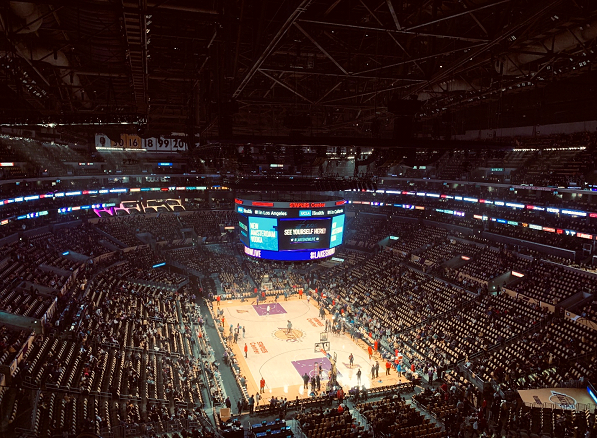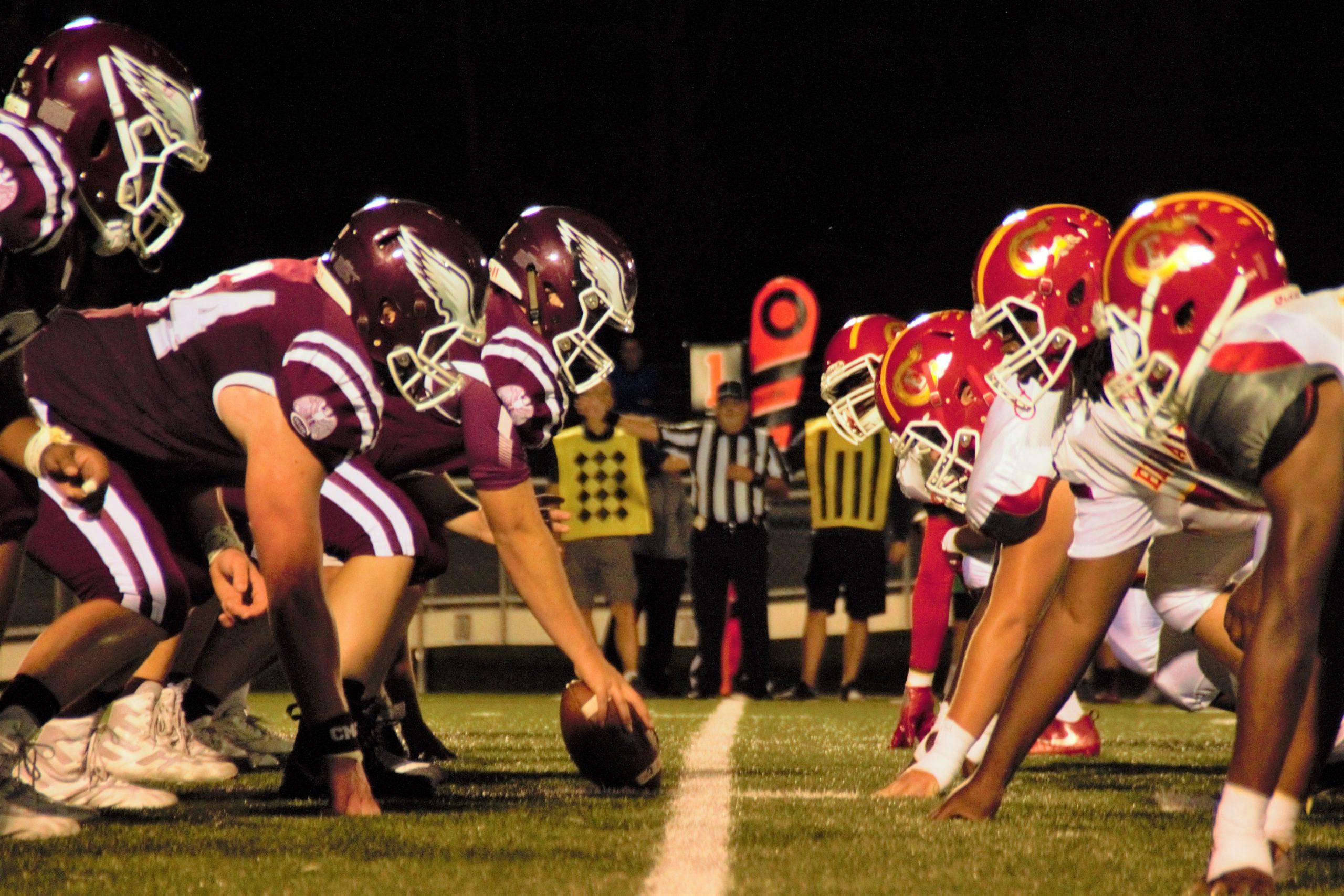How Online Betting Transformed Sports

Today, you’d have a hard time finding a football team without a sportsbook’s logo on their shirt. But it should come as no surprise. Sports betting has witnessed tremendous growth in the past few years, and its online arm is to a great degree responsible for it.
The development of online sports betting is transforming sports, and the key is fans’ engagement. This has both positive and negative effects. Read on to discover the whole picture.
Driving the gambling industry forward
Online sports betting has witnessed a surge in popularity. The industry has been on an ascending trend, with some analysts predicting that the global sports betting market size could grow 10% until 2028, reaching $140 billion globally.
Partly, this growth is linked with several US states legalizing sports betting. For example, research from the American Gaming Association points out that sports betting increased 63% in the United States, with over 18 million Americans placing online bets on the NFL.
Also, in Europe, 41% of all online gambling revenues were generated by sports betting. Based on this data, the online sports betting market shows a great deal of potential. The growth of online sports betting has a generally positive effect on the gambling industry in terms of revenue.
The gamification of sports
Experts at Nasdaq believe the expansion of online sports betting might have to do with the gamification of sports. In short, here gamification is defined as transforming the interaction with a sports match by adding gaming elements.
An example of sports’ gamification is live betting, a feature adopted by an overwhelming majority of online sportsbooks. In-play wagering transforms the experience of merely watching a game into an experience of participation, of having a more authentic connection with that event.
We’re a touch away from placing a bet from our smartphone, so you could say that now we’re more ‘in the game’ than ever.
Gamification is also evident in online betting communities. Bettors consult each other and weigh their predictions on forums to find value and gain an edge over the bookie. These forums elicit a feeling of camaraderie between punters, as they all share a common goal: beating the house.
Growing revenues for leagues?

Returning to the United States example, the recent and widespread trend of betting legalization might pour significant revenues into the major sports leagues’ pockets. Experts project that American sports may earn over $4 billion through advertising, sponsorships, and increased viewership.
In English football, betting sponsorships have brought over $140 million in the past year, with Spain following at $70 million. However, the American society seems more at ease with the gamification of sports.
Recent figures show a halving of gambling sponsorships in England from 15.3% to 8.1%. Some even predict a collective ban on gambling sponsorships might follow. While this situation remains in the realm of speculation, it worries certain clubs with sportsbook companies as their main sponsors.
As market movements indicate that online sports betting is here to stay, it seems strange to deprive sports leagues and clubs of potentially better sponsorship deals.
Betting advertising
Advertising had a say in the growth of sports betting, but it also changed sports themselves. We cannot expect to watch a Sunday match on TV without being flooded with ads from every bookie possible. The same holds when we read about our favourite athletes online.
Some bookies show odds while the match is running, and we get a lot of talk about betting in pre-and post-game talk shows. Often, guests are former sports personalities who come to play tipsters and give betting advice, which can go both ways.
While an experienced sportsperson may give useful tips, discussing a match from a betting perspective on a TV or online broadcast is somewhat risky. It’s not difficult to see how someone may take those tips and run with them, choosing to go ‘all in’.
Challenges and risks

Most experts see the industry’s growth as having a positive effect on sports. However, some don’t share their optimism. Gambling logos feature 700 times in football matches, prompting claims that gambling has a ‘parasitic influence’ on the game.
Indeed, excessive advertising may negatively affect sports, especially if gambling ads are broadcasted at improper hours when children could see them.
But even if we take this out of the equation, stadiums themselves are surrounded by gambling ads. Players act as advertisers themselves when they wear T-shirts inscribed with bookies’ logos.
Moreover, we’ve integrated betting vocabulary we talk about sports. We’ve come to see a sports match as a question of ‘who’s going to cover the spread’.
Parasitic or not, this influence cannot be reversed. But its negative consequences may be averted through education about the principles of responsible gambling. Gambling ads in and between football matches should be paired with reminders to gamble responsibly. These should go beyond just a small line of text under the bookies’ logos.
Accusations of match-fixing
Then, because of sports clubs’ association with gambling companies, some people go as far as putting the game’s fairness to doubt. For them, sponsorship deals raise ethical issues.
In fact, we could see this as the shadow side of sports betting’s influence on the game. We talk about who will cover the spread or if the odds of Lionel Messi scoring reflect reality, and that’s fine.
But a common tendency nowadays is to believe the matches are rigged when a player fails to score a penalty or gets a red card at the worst possible moment. And this tendency is most prevalent among sports bettors.
For example, a bookie gives 1.5 odds for Liverpool to beat Crystal Palace, and they lose in the 91st minute. If someone lost their wager like this, they might prefer thinking the bookie intervened rather than settling for the factual explanation that Liverpool had a bad day at the office.
Why sportsbooks don’t fix matches
It goes against logic that sportsbooks would fix matches. In fact, they are the sworn enemies of fixed matches because such matches represent a potential money leak.
A recent second-tier Colombian controversy shows match-fixing is not at all uncommon. Still, gambling companies don’t have anything to do with it most of the time. Again, it goes against reason that a global bookmaker would intervene in a second-tier match. It’s more probable that the players themselves arrange a game and have their friends score some easy money by betting on a sure outcome.
While a bookie may indeed post fake odds and mislead punters to bet on Liverpool when the team is on a bad streak, they wouldn’t go as far as paying them money to lose the game.
Numerous global and local betting organizations promote sports integrity. And licensed bookies are subject to local laws, leading us to conclude that this view is fundamentally flawed.
Concluding remarks
Overall, online sports betting has transformed the way we see and experience sports in multiple ways.
On the one hand, live betting enhances the interaction between fans and athletes. A sports event becomes a more intimate matter when you’ve wagered your money on it.
Then, in tandem with the industry’s rampant growth, our language when talking about sports has changed as well, incorporating all kinds of betting-related expressions.
On the other hand, we must be wary of excessive advertising because it poses a risk to children and problem gamblers. But we have to admit that addressing this risk cannot mean cutting any link between sports and betting.












